An interview with Shahrzad Akbar, the former head of the Afghanistan Independent Human Rights Commission and the executive head of the Rawadari Human Rights Organization
 Silk Way weekly: Ms. Shahrazad Akbar, the Independent Human Rights Commission of Afghanistan has not been active for a long time. Is the work of the commission finished?
Silk Way weekly: Ms. Shahrazad Akbar, the Independent Human Rights Commission of Afghanistan has not been active for a long time. Is the work of the commission finished?
Shahrazad Akbar: The Afghanistan Independent Human Rights Commission was the first office that was dissolved in early 2022 by the Taliban; But the leadership and some members of the commission continued to work abroad for a while. The reason was I resigned on January 22, 2022, the fact was that the position of the commission was defined in the constitution of the previous government and also the commission had its own law and had to operate inside the country. The commission should supervise the prison; But such a thing was not possible and the lives of my colleagues would be in danger. During the time I stayed in the commission, the reason was to advance the case of the evacuation of my colleagues. From my point of view, a national human rights institution should be active within the same territory. Otherwise, it is a non-governmental organization. That’s why I left it. It was not possible to manage the commission in exile. Also, the commission had more than four hundred employees all over the country. Taking a stand would also endanger their lives.
Silk Way weekly: We think that your human rights activity did not end with the end of the commission’s work; For now, you are managing Rawadari Human Rights Organization.
Shahrazad Akbar: The Rawadari Human Rights Organization started its activities officially and publicly in December 2022. Before that, the Rawadari team monitored the situation voluntarily. We had prepared reports and had not published these reports publicly; But we used to communicate privately with the United Nations and the responsible authorities and diplomats. You may check the Rawadari monitoring reports, we m monitored the human rights situation in Afghanistan since September 2021. There was a network inside Afghanistan that we were in contact with them. We tried to keep this contact.
Silk Way weekly: Please Talk about the field of activities of Rawadari.
Shahrazad Akbar: Rawadari operates in three areas: 1. Documenting the human rights situation and reporting in Afghanistan. It publishes four reports annually; Six-monthly, annual and two special reports. Last year, our special report was about access to information and freedom of expression. Our second report was about the status of women’s access to education. Ravadari has published twelve human rights reports so far. 2. Along with documentation and reporting, another part of our activities is focused on justice and accountability.
Silk Way weekly: What has been done for Afghan women’s access to international justice?
Shahrazad Akbar: In this regard, we are involved in the process of the International Court of Justice in consultation with Afghan civil society institutions. We also provided some of our reports and documents to the International Criminal Court. We are also working for other mechanisms of access to justice, including a people’s court.
Silk Way weekly: Tell us more about your connection to the International Criminal Court; The court whose chief prosecutor has issued a warrant to arrest the leader and the Chief Judge of the Taliban.
Shahrazad Akbar: The International Criminal Court started its activities in Afghanistan in 2006. It was a long process. Then ICC requested a suspension, which the government of that time (Republic) accepted this request. When the Taliban seized power, the court once again requested an investigation. It was a process in which victims from all over Afghanistan were involved. Their voice and pressure were very impressive; In order the court to take action. Afghan civil society also repeatedly requested that the court take action to deal with discrimination and harassment in Afghanistan. The result was the issuance of an arrets warrant for the arrest of the leader and the Chief Judge of the Taliban.
Silk Way weekly: Some countries, including some European countries, have referred the case of sexual abuse of women by the Taliban to the International Criminal Court.
Shahrazad Akbar: Regarding the International Criminal Court, the countries do not hand over the case. If a country has acceded to the Rome Statute, which Afghanistan has acceded to, then the court has additional jurisdiction to deal with these crimes in the case of countries that do not have the ability and desire to deal with war crimes and crimes against humanity. It is the same in Afghanistan. Naturally, several countries announced in December 2024 that we referred the case to the International Criminal Court; That is, we asked the court to deal with the issue of sexual harassment in Afghanistan. This is an important supportive step; But it does not affect the court’s decision. Countries cannot open a closed case. The process was going on, maybe they helped in speeding up the process. The countries signaled to the court that there is political support for its investigation in Afghanistan.
Silk Way weekly: Will it take a long time for the prosecutors of the International Criminal Court to issue an arrest warrant for the Taliban’s leader and Chief Judge?
Shahrazad Akbar: The process of the court is that the request is made by the prosecutor; The prosecutor requests for an arrest warrant. After that, the court examines the prosecutor’s request, and this period takes three months or more. After that, within six months, the court rejects or approves the arrest request. When it is confirmed, the obligation is created for the countries that are members of the Rome Statute, if these people travel to these countries, with the cooperation of the court, it provides grounds for arresting or bringing them to the court.
Silk Way weekly: Did you cooperate with the International Criminal Court through the Rawadari in the Human Rights Organization?
Shahrazad Akbar: Rawadari has published more than a dozen human rights reports. Our reports are public. Sometimes, when it was necessary to make the reports available to the sources of international judicial courts, we did so; Because it’s a confidential process, I can’t talk about the details; But our reports are focused on marginalized, vulnerable, ethnic and religious women and groups who are marginalized or discriminated against by the Taliban.
Silk Way weekly: The Taliban have repeatedly said that banning women from studying, working, and traveling in Afghanistan had religious, and national obstacles; It means that the people of some areas of the country are sensitive to this issue; But reports have been published that women have been raped, kidnapped and tortured by the Taliban. Can the Taliban defend such crimes with Sharia law and national values?
Shahrzad Akbar: Taliban cannot change the court verdict with religious and cultural excuses. If the prosecutors approve the arrest, which they most likely will, then religious and cultural justifications cannot do nothing. Taliban is facing an important accusation that it is a crime against humanity. This charge is very heavy. There is also a lot of evidence that the Taliban’s discrimination against women is very extensive and structured; Mass harassment of a group because of gender. The Taliban cannot remove the court from its responsibility by its actions.
Silk Way weekly: Not long ago, the Taliban published a statement and said that they would withdraw from the Statute of Rome. Can this prevent the issuing of an arrest warrant?
Shahrazad Akbar: Taliban is an illegitimate government; For this reason, they can’t quit the Rome Statute. If they are excluded, the court can rule on all the cases that Afghanistan was a member of the Rome Statute. Another path that leads to justice is the International Court of Justice. The four countries that took legal action over violations of the Convention on the Elimination of All Forms of Discrimination Against Women (CEDAW) could lead to a lawsuit. In this case, Afghan civil institutions are also involved in the consultation process. Rawadari has been actively working on this issue, preparing documents, consulting with inside and outside Afghanistan and we will continue this consultation process to establish an accountability mechanism through the UN Human Rights Council or the UN General Assembly that can document the situation.
Silk Way weekly: War crimes, genocide and rape are among the crimes committed by the Taliban against ethnic and religious groups in Afghanistan; Crimes that go beyond crimes against humanity. Do you think the Afghan issue is beyond the women’s issue? Will these crimes ever be prosecuted?
Shahrazad Akbar: Naturally, it is necessary to document the human rights situation of vulnerable groups. Beyond gender harassment, the war crimes committed by the Taliban and other groups in Afghanistan should be addressed. All victims can get justice in a meaningful way. A court is not enough, we must use all the tools at our disposal. The role of Afghan women and civil society institutions in this regard is very key to convey the experiences of different groups from inside Afghanistan in order to provide them to international courts.


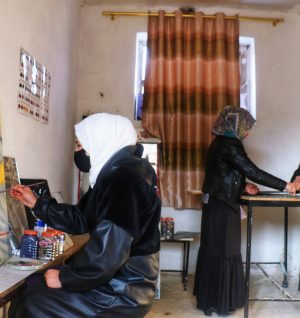
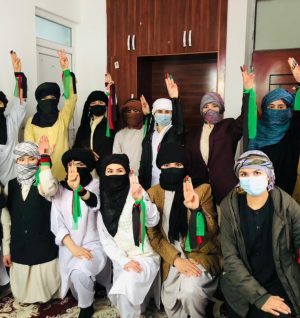
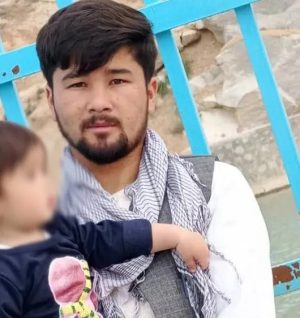
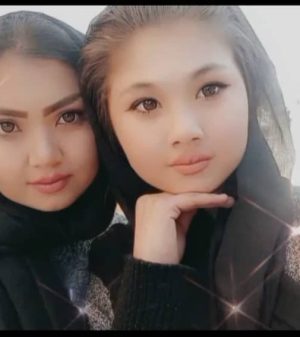
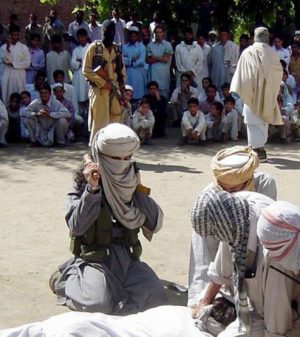
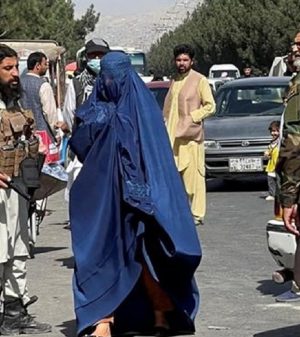
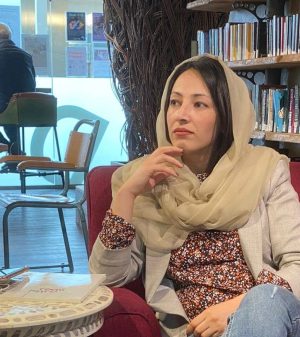
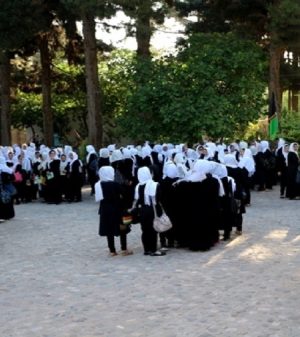
Add Comment